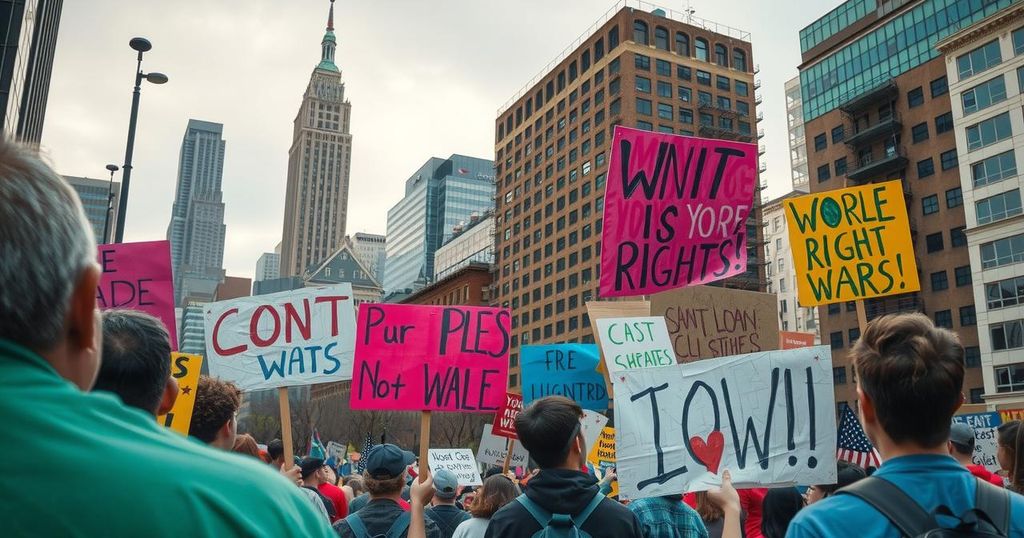Sacked Syrian workers are protesting across the nation following mass firings initiated by the new government targeting the public sector. The reallocation represents a shift towards privatization and neoliberal reforms, raising concerns over the economic stability of millions already living in poverty. The protests are led by organized groups demanding reinstatement and greater accountability amid fears that privatization would further threaten essential public services.
Recent mass firings of public sector employees in Syria have sparked nationwide protests among those dismissed, who are increasingly organizing via social media. Among them is Ahlam Hassanien, a former manager at Syrian Telecom, whose termination has severely impacted her family’s livelihood, and caused her distress as she struggles to secure another job. While she earned a modest salary, her position was crucial for her as a single mother and law student, highlighting the precarious situation of many in similar circumstances.
The newly established government under President Ahmad al-Sharaa seeks to privatize significant portions of the economy, including 107 state-run industries, as part of an effort to tackle corruption. Critics argue that the previous regime’s employment practices favored loyalty over merit. Stunted by ongoing sanctions and economic decline, the government’s plans face substantial opposition from recently sacked workers who demand reinstatement and better compensation, fearing poverty and loss of essential public services.
Joseph Daher, an academic, asserts that the current administration’s shift toward a neoliberal economic paradigm disregards the social implications of widespread privatization, particularly how it could exacerbate poverty among Syrians relying on state aid for daily needs. Amid reports declaring that 90% of the population lives in poverty, Daher calls for a thorough audit of the employment figures to ensure a fair and just transition, emphasizing that austerity measures without proper scrutiny are unjustified.
The gravity of the situation is reflected in the Syrian Observatory for Human Rights report detailing mass firings of healthcare workers, notably in state-funded medical sectors, with further protests planned among affected employees. Organizers from the Democratic Change Workers group assert that legal recourse against these terminations is underway, declaring the actions of the government illegal and illegitimate.
As these protests continue, with some demonstrations attracting up to 400 participants, the plight of the dismissed workers poses a significant challenge for the transitional government. They argue that decisions affecting Syria’s economic stability should not be made by an administration lacking political legitimacy, and emphasize the necessity for broader democratic engagement and accountability in governance as the country navigates its uncertain future.
The recent wave of protests among dismissed Syrian workers underscores the deep economic anxieties and injustices faced by a populace already reeling from conflict and corruption. With calls for reinstatement and accountability, as well as criticism directed at the government’s neoliberal policies, the potential consequences of these mass firings are likely to shape the socio-economic landscape of Syria for some time. The necessity for a more inclusive and legitimate governance model is imperative to effectively address these pressing issues.
Original Source: www.middleeasteye.net




